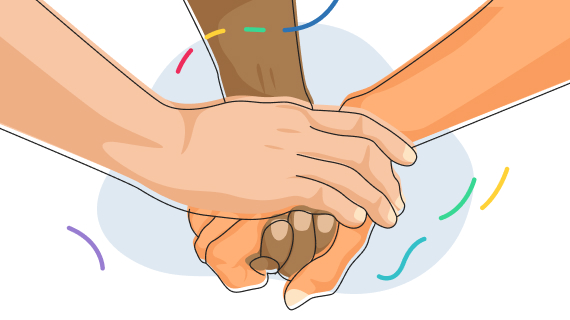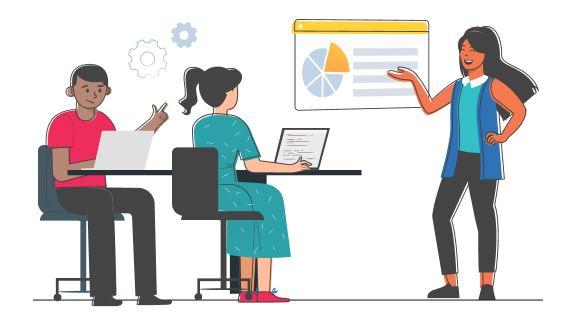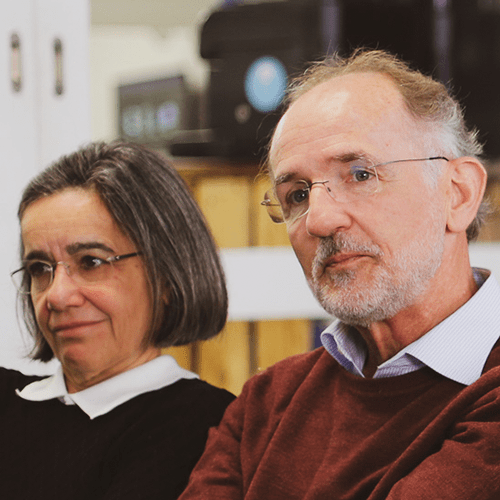
The Latest Fad? Or is there more to it than meets the eye?

Sustainability has become one of the most used words when referring to social impact. However, it’s much more than a simple fashion of the days.
Indeed, beyond the currently prevailing fashion of using that word in just about every sentence, it is important that we, as well as civil society at large, focus on the sustainability of our impact. The impact of what we will have accomplished has to outlive us significantly (or at the very least outlive our presence onsite).
By now most organizations have reached the conclusion that it is better to teach how to fish rather than give a fish. However, there are many other aspects of sustainability that go beyond that.
International NGO: Focus on systemic changes as opposed to direct services to the participants

While local NGO’s and local institutions are well equipped to provide effective direct social services and their services are well received because they are naturally very culture sensitive, INGO’s should focus on systemic changes.
By systemic changes, I am referring to those that typically require significant infrastructure or paradigm changes and that challenge business-as-usual. These are changes that local entities are poorly equipped to do: not only don’t they typically have the financial resources to perform these but whatever resources they have are usually earmarked for direct social services.
Let’s focus on where we bring the most value: if you are an INGO make sure to place priority on these projects of systemic nature and let others provide direct services to participants.
Acceptance is key!
As much as possible our focus ought to be on helping the participants put in place durable infrastructure and operational models.
Please note that I did not say that we need to put in place such infrastructure and models but rather that we need to help them put it in place.
Indeed, in order for an infrastructure or model to continue to exist and be used, it does require that there be a sense of ownership among those in charge once you left. Quite clearly, if people run and use the system begrudgingly, they will inevitably drop the ball on the first occasion, that is, when the goings get tough.
If on the other hand the main stakeholders of your project were also part of the decision and design phase, they will have some ownership in it, it will be “their baby”. That will turn them into motivated agents for keeping this in place and used.
I would go as far as saying that between a perfect solution you have dreamt-up and a good solution that was designed with their help, I would go any day with the latter. While it won’t initially be as good as what you had thought about, its impact a few years down the road will be infinitely bigger because of the energy they will keep putting into maintaining and promoting it.
Sustainable training

A few years ago, we were talking with the head of a large international NGO (name charitably withheld). He was telling us: “I don’t get it, we organize workshops, we train hundreds of people and, the following year… we have to do it again”.
You would think that he would have drawn some conclusions and attempted to fix the situation? No, they kept organizing workshop and training more and more people…
In many developing countries, when you train people in any particular field, they become more valuable and can typically commend a better wage by moving to a new position, where their newly acquired skill may be less relevant, and leaving an opening for the job they used to occupy.
I would contend that simply training people is akin to giving fish to someone. While it may achieve some impact in the short term, said impact will not last very long.
The focus ought to be on training the trainers. Indeed, in many cases, you can work on having a local vocational training school or institute integrate your training material in their curriculum.
Granted you won’t be able to go back home and claim to have trained umpteen hundred people. Now, is that your goal? Or is your goal to help the community improve? If so, forget about counting directly impacted participants and look at the big picture.
How we, Fondation Tutator, apply this to what we do

Our guiding principles include the following aspects of sustainability when we deploy new processes and the tools to accompany these processes:
Information Technology
Our ultimate goal is to make sure that the institution we are helping will be as self-sufficient as possible.We make sure that they have their own servers to run the software we develop for them,
We properly train their own engineers to manage the application so that they don’t need our help to run their activities on a daily basis and
We give them the “source-code” we developed with a full license to modify said code for internal use so that they retain the freedom to use it as they see fit and make alterations if they decide to.
Training
We want to make sure that the new behaviors and practices can be sustained despite the renewal of staff: from the famous “train the trainers” approach to making sure that our curricula be integrated in formal training of personnel going forward.
All the training material and program we developed to train the various actors of the juvenile justice system in Bolivia has been integrated into the curriculum of the Bolivian “Escuela de la Judicatura”. This way, going forward, every single lawyer/D.A./judge coming from this school has proper training on this important topic.
Process Stability
Our tools are also meant to provide a certain level of “inertia” in the procedures.
Indeed, changing the tool that’s used on a daily basis by most of the actors in the system would be difficult and would require time and effort. While inertia is oftentimes seen as a drawback, in this case it is a feature: it can provide a well-needed stability and prevent “knee-jerk” reactions when a particular event will trigger some spontaneous reaction in the general public that might trigger undesirable adjustments (Mano Dura etc.)
When a particularly heinous crime was committed by a gang of young men in a country where we work, captured by CCTV and published on YouTube, the popular reaction was quasi-unanimous: “Let’s hang them”. This is one such situation where some level of inertia will give the authorities a tool to ask for patience and will let the spirits cool off…
Net net, our mission is… to make ourselves unnecessary!
– –
In an upcoming paper, we will be sharing with you how the concept of “software services” has radically changed over the past few years and how an “investment” has turned into a “cost of doing business”
